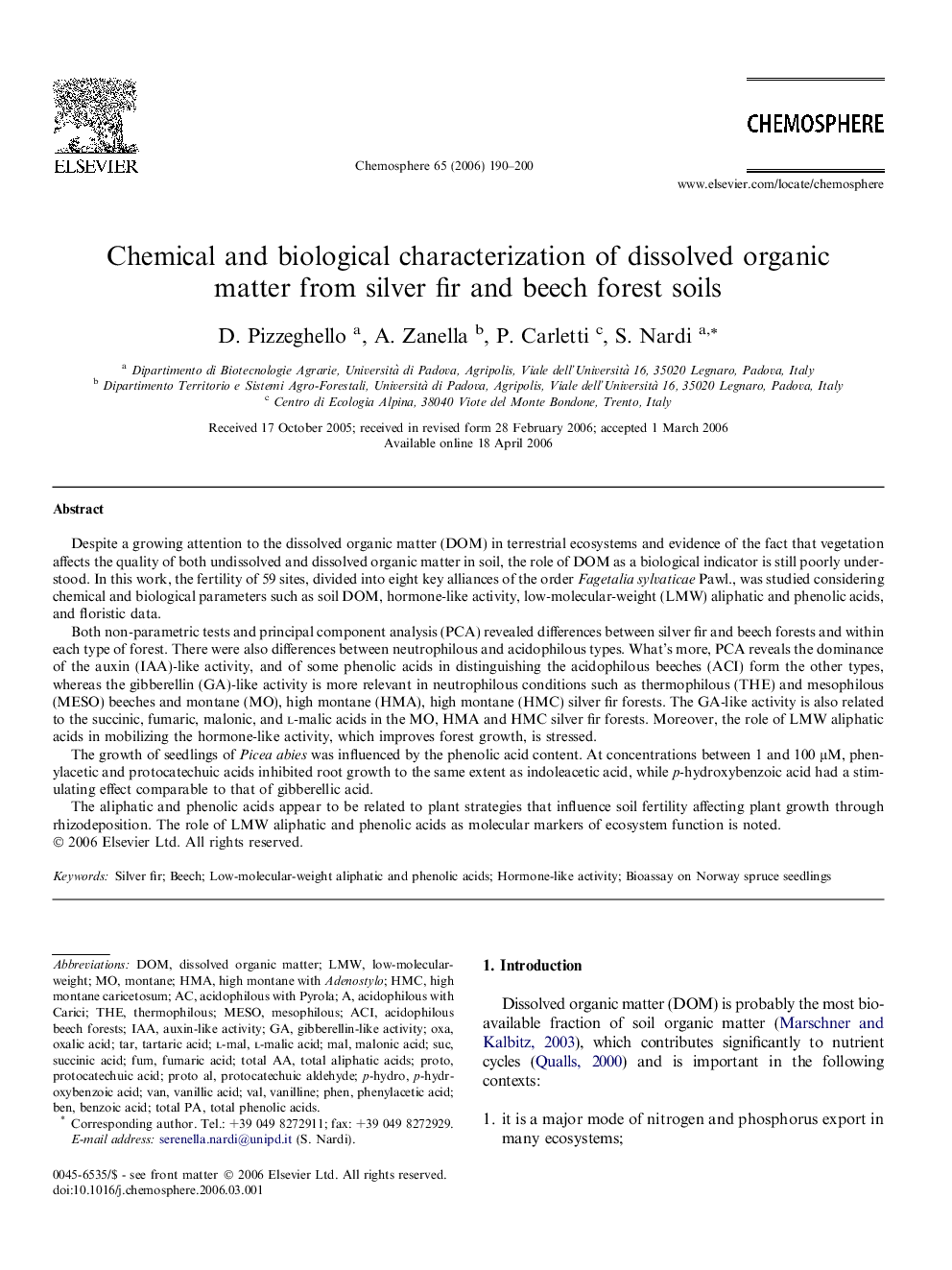| کد مقاله | کد نشریه | سال انتشار | مقاله انگلیسی | نسخه تمام متن |
|---|---|---|---|---|
| 4416593 | 1307790 | 2006 | 11 صفحه PDF | دانلود رایگان |

Despite a growing attention to the dissolved organic matter (DOM) in terrestrial ecosystems and evidence of the fact that vegetation affects the quality of both undissolved and dissolved organic matter in soil, the role of DOM as a biological indicator is still poorly understood. In this work, the fertility of 59 sites, divided into eight key alliances of the order Fagetalia sylvaticae Pawl., was studied considering chemical and biological parameters such as soil DOM, hormone-like activity, low-molecular-weight (LMW) aliphatic and phenolic acids, and floristic data.Both non-parametric tests and principal component analysis (PCA) revealed differences between silver fir and beech forests and within each type of forest. There were also differences between neutrophilous and acidophilous types. What’s more, PCA reveals the dominance of the auxin (IAA)-like activity, and of some phenolic acids in distinguishing the acidophilous beeches (ACI) form the other types, whereas the gibberellin (GA)-like activity is more relevant in neutrophilous conditions such as thermophilous (THE) and mesophilous (MESO) beeches and montane (MO), high montane (HMA), high montane (HMC) silver fir forests. The GA-like activity is also related to the succinic, fumaric, malonic, and l-malic acids in the MO, HMA and HMC silver fir forests. Moreover, the role of LMW aliphatic acids in mobilizing the hormone-like activity, which improves forest growth, is stressed.The growth of seedlings of Picea abies was influenced by the phenolic acid content. At concentrations between 1 and 100 μM, phenylacetic and protocatechuic acids inhibited root growth to the same extent as indoleacetic acid, while p-hydroxybenzoic acid had a stimulating effect comparable to that of gibberellic acid.The aliphatic and phenolic acids appear to be related to plant strategies that influence soil fertility affecting plant growth through rhizodeposition. The role of LMW aliphatic and phenolic acids as molecular markers of ecosystem function is noted.
Journal: Chemosphere - Volume 65, Issue 2, October 2006, Pages 190–200